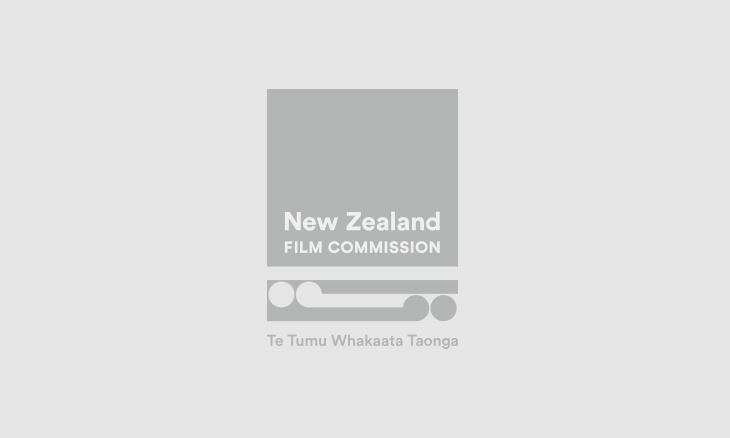
A record number of New Zealand women directors are among the filmmakers to have films selected for the 2019 Berlin Film Festival.
In total there are ten New Zealand films in official selection with a delegation of 28 New Zealand filmmakers attending. This includes two New Zealand filmmakers chosen for Berlinale Talents, one as the New Zealand NATIVe Fellow and one presenting in the co-production market.
Two New Zealand short films, both directed by women, Hush and Ani will screen In Competition in the festival’s Generation section.
Hush, written by Armagan Ballantyne and Maria Ines Manchego, directed by Ballantyne and produced by Larissa Tiffin, tells the story of Ava, a young woman who surprises her brother and friends when she suddenly turns up in her small home town with a secret. Hush will screen In Competition in the festival’s Generation14+ section.
Ani, written and directed by Josephine Stewart – Te Whiu and produced by Sarah Cook tells the story of nine-year-old Ani who drifts into a land of play and make believe after her mother runs out on the family, leaving Ani and her father to fend for themselves. Ani will screen In Competition in the festival’s GenerationK+ section.
Chef’s Table – Asma Khan an episode of the Netflix Original documentary series directed by Zia Mandviwalla has been selected to screen in the Culinary Cinema programme. Zia first attended the festival as part of the Berlinale Talents in 2007.
Four New Zealand features and four shorts will screen in the NATIVe section which this year focuses on films from the South Pacific region. Features Vai and For My Father’s Kingdom will have their world premieres at the festival, as will short films Liliu and Toa’ipuapugā Strength in Suffering. Merata: How Mum Decolonised the Screen will follow its international premiere at Sundance with a European premiere in Berlin. One Thousand Ropes, which had its world premiere at the Berlinale in 2017, will screen as a retrospective along with short films Snow in Paradise and Va Tapuia.
Congratulating the filmmakers, New Zealand Film Commission (NZFC) CEO Annabelle Sheehan said, “The Berlinale is such a significant festival and a great platform for introducing New Zealand voices to European audiences. That this year’s selections include so many women and indigenous filmmakers is truly exciting given the focus that our organisation and the wider film industry has placed on reaching gender equality and reflecting true diversity.”
Vai will open the Berlinale’s NATIVe section. Produced by Waru’s Kerry Warkia and Kiel McNaughton, Vai was written and directed by nine Pacific women, ‘Ofa-Ki-Levuka Guttenbeil-Likiliki, Matasila Freshwater, Amberley Jo Aumua, Mīria George, Marina Alofagia McCartney, Dianna Fuemana, Becs Arahanga and Sharon Whippy (writer) and Nicole Whippy (writer/director). Filmed in seven different Pacific countries, the film follows the lifetime of Vai, played by a different indigenous actress in each of the Pacific countries. In each of these Pacific nations ‘vai’ means water which serves as the link between each vignette.
Vai producers Kerry Warkia and Kiel McNaughton say, “It is an incredible honour that Vai has been selected to open the NATIVe program of the 2019 Berlinale Film Festival. We are thrilled that all nine indigenous female filmmakers will be attending the festival to represent the film!”
For My Father’s Kingdom, produced by Sandra Kailahi and Vea Mafile'o and directed by Mafile’o and Jeremiah Tauamiti is a feature documentary about Vea’s father, Tongan migrant pensioner Saia Mafile'o. Driven by his deep faith in God and Tongan culture, pensioner Saia Mafile’o carefully navigates not only the rough streets of South Auckland, but also his sometimes-fraught relationship with his New Zealand-born son Robert, who struggles to accept his father’s commitment to a Kingdom that tore their family apart.
Two short films from the directors of For My Father’s Kingdom will also have world premieres at the festival. Liliu, written and directed by Tauamiti and produced by Ngaire Fuata, tells the story of a young ambitious court interpreter in Samoa who risks everything when Nua, a wrongfully imprisoned Chief, fights to get back to her stranded grandchildren. Toa’ipuapugā Strength in Suffering, written, directed and produced by Vea Mafile’o is about a young Samoan woman who sees visions and shows signs of stigmata during an Easter service and must confront social media abuse and controversy in her small island nation.
The NATIVe – A Journey into Indigenous Cinema special series has been part of the Berlinale since 2013 and is dedicated to the cinematic storytelling of Indigenous peoples from around the world with a focus on a different region every two years. Generation Kplus and Generation 14plus are two competition programmes screening state-of-the-art international cinema for young audiences and for everyone else. The Culinary Cinema programme draws attention to the fact that taste is not only a culinary but also a cultural value. For some of the events, top chefs create a menu inspired by the evening’s film which is then served to the cinema audience in a pop-up restaurant following the screening.
The Berlinale takes place annually in February and is one of the world’s most important film festivals, screening up to 400 films each year, predominantly world or European premieres. New Zealand films which have screened at the Berlinale include Mahana, The Inland Road, Born to Dance, Boy, The Weight of Elephants, and What we do in the Shadows.
The 2019 Berlinale runs 7-17 February. Vai is being represented in the market by MPI Media, and distributed in New Zealand and Australia by Vendetta Films. For My Father’s Kingdom will be distributed in New Zealand and Australia by Rialto Distribution. More information about the films and screenings can be found on the festival’s website.